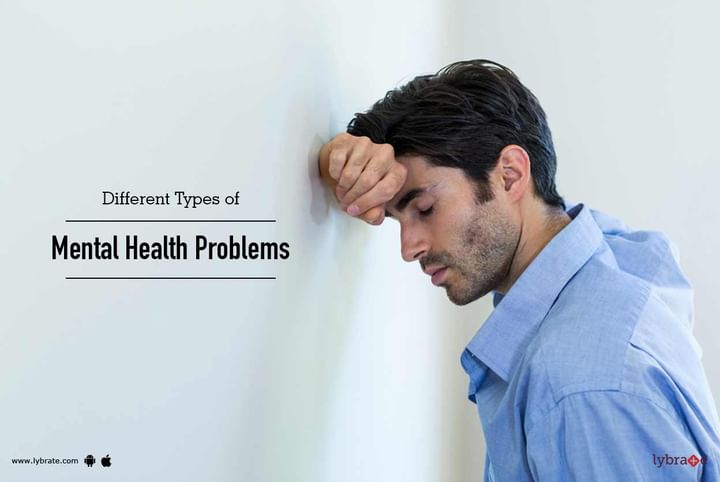Different Types of Mental Health Problems
Having a mental problem can be very frightening and distressing. Person suffering from any kind of mental disorder may have a feeling that they are losing their mind, causing fear and sense of isolation. It is important to know that having a mental issue doesn't mean that you are going mad. There are various disorders and problems, which may arise relating to mental health. These problems can change the way you think and behave. Therefore, it is important to know what kind of disorder you are suffering from and what could be the reason behind it. The disorders are of different types and have different effects and symptoms.
Here are the different types of mental health problems:
- Anxiety disorders: People suffering from anxiety disorders are fearful while responding to certain objects and scenarios. Physical signs of panic and anxiety are present as well, which may include rapid sweating and rapid heartbeat. Treatment is required when a person cannot control his response and when his response is inappropriate. Anxiety disorder involves a general anxiety disorder, social anxiety disorder and phobia.
- Mood disorders: These kinds of disorders are also known as affective disorders and the patients feel persistent feelings of depression and several periods of intense joy in a fluctuating manner. Depression, bipolar disorder and cyclothymic disorder are some common types of mood disorders.
- Psychotic disorders: In this kind of disorder, a patient experiences distorted awareness and thinking. Hallucinations or perceptions of unreal images or sounds and delusions are common symptoms of psychotic disorders. The most common psychotic disorder is schizophrenia.
- Eating disorders: Eating disorder incorporates extreme emotions, attitudes and abnormal behavior regarding food and weight. Common eating disorders include bulimia, anorexia nervosa and binge eating.
- Impulse control disorders: People with this kind of disorder usually work upon their impulse in an extreme way and cannot resist their impulse to carry out tasks, which may cause harm to them or to others. They include pyromania, kleptomania and compulsive gambling. Such people are likely to get addicted to drugs and alcohol and become deeply engrossed in these practices.
- Personality disorders: People affected by personality disorders possess extreme, inflexible traits in their personality, which cause distress to them and may cause problems in work, school and in social relationships. A person's thinking patterns and behavior change significantly from what is accepted by the society. Examples of personality disorders are antisocial personality disorder, paranoia and obsessive compulsive personality disorder.
- Obsessive compulsive disorder: People suffering from obsessive compulsive disorder or OCD suffer from constant fearful thoughts, which may affect the smooth functioning of everyday life. The patient gets obsessed with thoughts and performs some rituals, which are called compulsions.
- Post-traumatic stress disorder: Post-traumatic stress disorder or PTSD is a condition, which develops after a person has experienced or witnessed a traumatic event and cannot get over the thoughts of that event. Long lasting fearful thoughts are experienced in the event and the patient may become numb emotionally.
There are many forms of mental health problems and mental illnesses. They all have different effects on the mind and some are quite serious. Effective treatment should be taken in case of mental-health problems.
In case you have a concern or query you can always consult an expert & get answers to your questions!



+1.svg)
